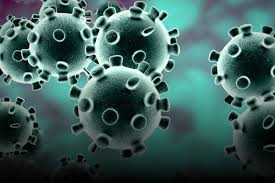Why Not Caring Isn’t Option for Coronavirus

February 13, 2020
In his recent State of the Union address, President Trump spoke about American coordination with the Chinese to help combat coronavirus. It was reassuring to see a President, often characterized as an isolationist and science skeptic, addressing an international science issue–especially when Americans only seem to treat coronavirus like a Hollywood boogeyman, rather than the international threat that it actually is. In part, the public’s response to coronavirus is not their fault; nevertheless, the swaths of misinformation and the spirit of indifference must be strongly combatted.
Certain misconceptions about the recent outbreak of coronavirus have not been appropriately addressed–either by the press or world health officials. First and most importantly, the public should understand that coronavirus refers to a group of viruses science has been familiar with since the 1960’s. The strain of coronavirus attributed to the recent outbreak in China is the seventh discovered to affect humans. Testing indicates the newly discovered strain is similar to those already traced and extensively researched; it is 79% genetically identical to the SARS strain connected to a highly publicized and controversial outbreak in Asia in 2003.
Speculative reporting about the virus’s origin has also been problematic and questionable in its scientific authority. The nativist inclinations of many western media sources have been quick to latch onto a “wet market” in Wuhan, China, as the ground zero for this virus. The idea that the standards of cleanliness in Chinese food facilities are so much worse than in America is unsupported: the Chinese food supply has been largely successful at supplying hundreds of millions of people with reliable, safe sustenance. There have also been significant cases in individuals not connected to these markets, signaling a still unidentified origin. By and large, it is irrational to fear coronavirus, especially when the enormousness of the resources working to eradicate it are considered, but there is an important distinction to be made between fearing the virus and having a blithe disregard for it.
Unfortunately, the contemporary interconnectedness of the world practically guarantees coronavirus will spread, especially within the United States, which shares an especially close trade and tourism relationship with China. The Center for Disease Control (CDC) warns that as long as no vaccine exists for coronavirus, people need to be vigilant in their adherence to simple preventative measures: handwashing and avoiding excessive touching of the eyes, nose, and mouth.
The responsibility, nor the ability to actually stop coronavirus, is not lodged alone with TSA agents, nor government-contracted doctors, but actually with the at-risk population. History doesn’t reflect on pandemics like the Spanish Flu of 1918, nor the infamous Black Death of the 14th century, by condemning the obsolete, hazardous practices of period doctors. Instead, the glaring inconsistencies in public hygiene standards are the obvious sources for accelerated transmission. I’m not the first person to make this conclusion, but it is nonetheless valid: it is as tragically unfortunate, as it is predictable that coronavirus has managed to incite the base attitudes of Americans toward Chinese–instead of getting people to wash their darn hands.
As much as the American public truly relishes in its right to petition, and is fast to criticize the happenings in Washington, the government does still reflect the public’s attitude—or lack thereof—in many ways. Politicians are only able to score points with their coronavirus platitudes because the public is—at least for now—hyper-responsive to the viral crisis.
This relationship between the focus of the public and that of Washington’s is in part why apathy about coronavirus is inappropriate. I shudder to think of how little Washington would do if the public did not seem to care about coronavirus, considering the conservative avulsion to internationally motivated expenditure, and the president’s particular predisposition to distrusting agencies like the World Health Organization. In a sociopolitical society defined by the convenience of sympathy and globalism à la carte, its not particularly surprising to see Americans turn their backs on the Chinese people who serve a critical—albeit displaced—role in our everyday economy. Nativism and bad press have also somehow managed to stave off any pronounced American business efforts to seize on the viral crisis as an opportunity for capital gains.
Coronavirus will ultimately become a footnote in the totality of human medical history, but for the hundreds of people affected by it right now, it is a footnote with grave, undeniable significance. And while it may be convenient for people to respond to coronavirus with this farsighted mindset, to actually ensure coronavirus’s historical insignificance requires a concerted, proactive global campaign against it–here in the present.